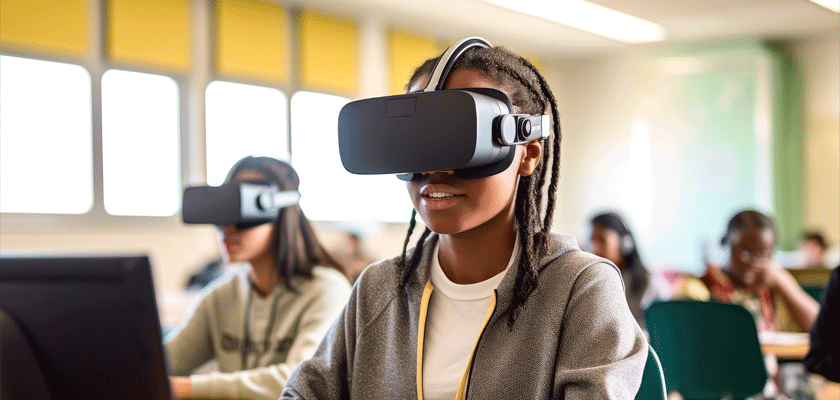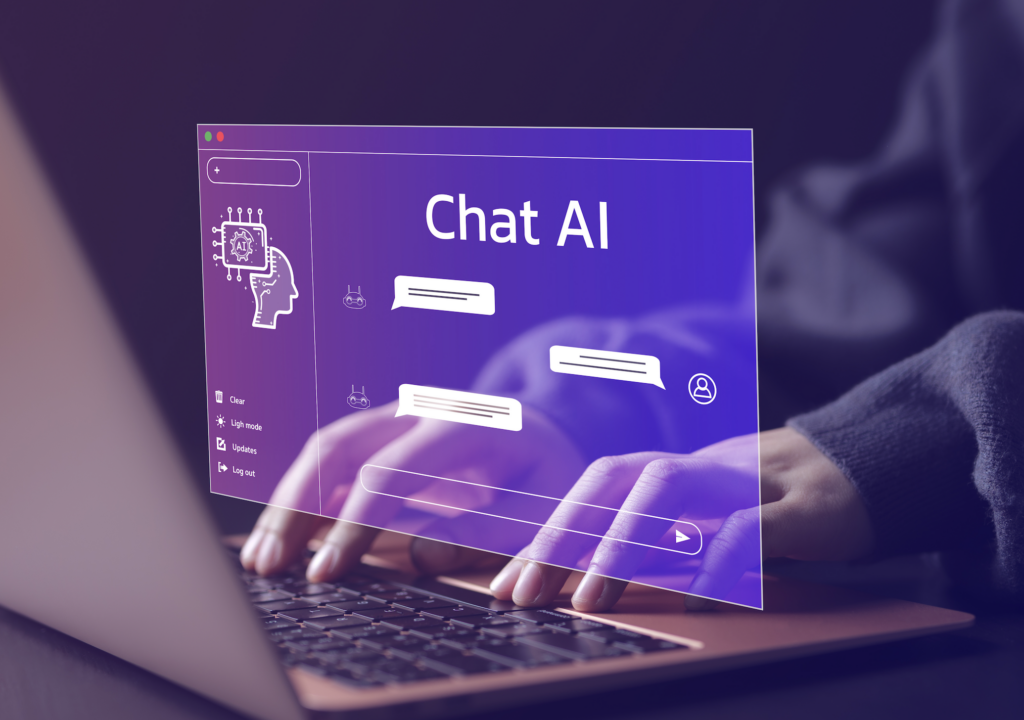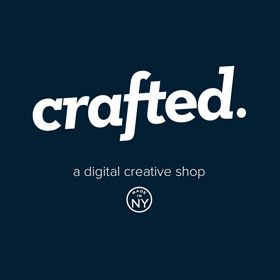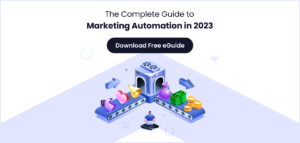
Will Generative AI and Mixed Reality Technologies Change Our Lives Radically?
There is no doubt that in recent years, all players in the advertising and marketing industry have been discussing how artificial intelligence will play a big role in our lives. However, it seems that the story does not end with artificial intelligence alone, on the contrary, artificial intelligence is only a part of the new digital world.
The emergence of AI and the mixed technologies herald a wave of remarkable advancements and promising opportunities. Although, it also raises legitimate concerns, especially among individuals who derive their livelihood from creative endeavors.
Ultimately, the pivotal question arises: Will these disruptive technologies change our lives radically? Let’s discover together.
Back to Basics: Present and Future of AI
Certainly, we all seem to love the phrase “generative artificial intelligence,” but do we actually know what it refers to?
In basic terms, generative artificial intelligence is a fancy type of AI that can create text, images, and all sorts of media when you give it a nudge. These AI models are trained on loads of data, picking up the patterns and structure, so they can create new elements that look and feel similar.
In a highly short period, several generative AI systems have made a significant impact in the field. ChatGPT, developed by OpenAI, stands out as a chatbot utilizing the powerful GPT-3 and GPT-4 language models. Its variant, Bing Chat, offers an equally intriguing conversational experience.
Google’s Bard has also garnered prominence as an advanced chatbot so far. Shortly after these platforms went live, a great number of users started publishing AI-generated images of well-known figures including Donald Trump and Pope. And yes, we need to accept that these visuals have sparked controversy worldwide.
Furthermore, several organizations have conducted and published their surveys regarding AI & related fields, thereby influencing the formation of opinions surrounding this technology. As one of these organizations, global management consulting firm McKinsey & Company says as follows about AI in the report named “The economic potential of generative AI: The next productivity frontier:”
“All of us are at the beginning of a journey to understand generative AI’s power, reach, and capabilities. This research is the latest in our efforts to assess the impact of this new era of AI. It suggests that generative AI is poised to transform roles and boost performance across functions such as sales and marketing, customer operations, and software development. In the process, it could unlock trillions of dollars in value across sectors from banking to life sciences.”
As for Trendwatcher and futurist Richard van Hooijdonk is a little bit tough about AI:
“Generative AI is a very convincing liar. It is able to generate rather impressive-looking ‘original’ content, but as it is solely based on training data, we need to realise that the accuracy and originality of this content can leave much to be desired. So, no matter how good technology seems to be performing, the importance of due diligence — by humans — should not be underestimated”.
While a piece of negative opinions swirling around, we have personally witnessed the enchanting impact of AI as it swoops into our lives, effortlessly transforming them from complex to remarkably streamlined and productive, especially through some generative AI and machine learning tools like NVIDIA StyleGAN, DeepArt.io, ChatGPT, Amper Music, Jukedeck, Google Magenta, DeepDream, RunawayML, and so on.
A Future Ruled by AI & Mixed Technologies: Impacts on Human Life
In the present, we can reach our goals quicker and with less fuss, thanks to all the optimization and efficiency AI and mixed tech bring to the table; this is the best part. At the same time, we know that these technologies are going to blend right into every nook and cranny of our lives. And we can not imagine whether we like this kind of “close friendship” or not.
How about acting like a conspiracist for a minute to get the answer?
Does AI Pose an Existential Threat?
“AI is either the best or worst thing that will ever happen to humanity. We don’t know which yet.”
Bill Gates
So, it’s not possible to say that AI absolutely becomes hostile to humans and poses an existential threat.
At the same time, we all know that AI is so powerful and has a great potential for misuse that can lead to discrimination, privacy violations, or manipulation. It would not be surprising when considering that AI and related mixed technologies have vast amounts of data. In the worst-case scenario, this huge data bunch could be at risk of privacy breaches.
The belief that AI presents a potentially existential threat is also known as the “AI control problem.” Basically, this refers to the challenge of ensuring that AI systems remain aligned with values and objectives, without posing any risks to humanity. It also highlights the matter of developing AI technologies in a manner that prioritizes that these systems are under control all the time.
To not face these kinds of negative occurrences, it’s critical for policymakers, researchers, and industry leaders to be actively working on developing frameworks, regulations, and guidelines to ensure the ethical use of artificial intelligence based tech.
Will the Development of Artificial Intelligence Help Humanity?
Artificial intelligence seems to hold great potential to advance civilization. AI and related technologies (including mixed tech) can bring about dramatic modifications that enrich human lives by moving toward a more sustainable future, from boosting healthcare and driving automation to coping with global concerns and optimizing decision-making.
Actually, AI brings numerous benefits to humanity, and its transformative power shines through key aspects that positively impact human life. One such aspect is Natural Language Processing (NLP), which refers to generating human language through computers. With NLP, we see the rise of chatbots, voice assistants, and sentiment analysis, revolutionizing communication, and customer interactions. Even though the common concern about NLP is that it can replace the content writer, actually NLP-based chatbots can deliver instant customer support and assistance and improve user experiences across industries.

Another benefit of artificial intelligence (AI) and mixed technologies is extracting certain patterns & correlations from immense datasets. In other words, AI models can sift through mountains of information to uncover insights which can be used for data-driven decision-making, predictive modeling, and optimization. AI’s capacity to analyze big data can allow organizations to unlock new opportunities for development, innovation, and efficiency.
One more fact showing that AI is a helping hand for humanity: Artificial intelligence and related mixed technologies can automate tasks currently done manually, freeing time up for more creative and productive activities.
More specific? In healthcare, it’s predicted that AI and mixed technologies offer immense potential to revolutionize diagnostics, pharmaceutical discovery, and treatment plans, leading to more accurate and personalized care. It can analyze extensive amounts of medical data, detect patterns, and provide valuable insights for healthcare professionals, ultimately improving patient outcomes and advancing medical research.
Even though Elon Musk states that “the biggest existential threat facing humanity is artificial intelligence,” a great number of experts address that it’s important to understand that the benefits and risks of AI mentioned in this article are only a glimpse of its potential impact on humanity. The actual consequences directly depend on our choices – knowing the tips for using AI securely. – In case we approach AI with ethics at the forefront, it holds immense potential to enhance various aspects of our lives.
The Future of Augmented Reality in Everyday Life
Let’s start with a short description of augmented reality: AR is a game-changing technology that seamlessly integrates contextual information and overlays multi-layered images onto real-world objects in real time.
While fashion and cosmetics companies have long been utilizing AR to assist customers, the unprecedented success of AR-powered online games inspired the marketers across different sectors to join the trend. The sky’s the limit when it comes to the impact of augmented reality on customer engagement. By fusing online marketing principles with the tangible world, it redefines the very essence of advertising. And yes, this tech creates the future of digital advertising and those knowing how to manage all these changes in the digital world win the day.
So much so that, global brands now can showcase their products on any surface, in addition to using AI in social media platforms and for digital marketing efforts (like email marketing). They offer by using the advantages of AR a totally new experience without breaking a sweat.
As the Internet of Things continues its rapid march forward, augmented reality seems to steal the show in our everyday lives, taking center stage as the go-to method for receiving and interacting with data achieved from the objects around us. It’s like putting the icing on the cake, enhancing our reality with a touch of digital enchantment.
These potentials may sound like something straight out of a science fiction blockbuster, however, it’s crucial to bear in mind that what we have at our fingertips today would have been considered as magical as pulling a rabbit out of a hat just a couple of decades ago.
How about Metaverse? – Future of Work & Future of Internet
The Metaverse, repeatedly described as the future of work and the future of the internet (usually in the last 2 years), portrays a concept where virtual and physical realities merge into an interconnected digital realm. In other words, the metaverse offers a virtual space where people can engage, interact, and create.
At this point, let us remind you how Mark Zuckerberg, CEO of Meta, introduced the metaverse:
“The metaverse is the next generation of the internet, where people will be able to interact with each other and with digital content in a more immersive and realistic way.”
Given the potential of the metaverse in revolutionizing collaboration and communication, it comes as no surprise that this technology rapidly holds profound implications for the future of work. Because of that, a great number of organizations including well-known companies started to create a virtual office space where coworkers from diverse corners of the globe can come together in the realm of The Metaverse.
In addition to business-related advantages, the Metaverse keeps the power to reshape the future of the internet. It refers to an idea of an interconnected and decentralized network instead of traditional web browsing. Rather, users can dive into a multi-dimensional online universe, with captivating ways to access information, services, and entertainment. Regarding that issue, Satya Nadella, the CEO of Microsoft, appears to share Zuckerberg’s perspective:
“The metaverse is the future of the internet. It’s a place where we can all come together, regardless of where we are in the world, and interact with each other in a more meaningful way.”
In this new world – a.k.a the future of the internet – users also can create their virtual spaces, products, and avatars while sharing their own generated content limitlessly.
Moreover, the VR and AR headsets amplify the Metaverse experience by making users feel like they’re really stepping into the virtual realm, rather than simply experiencing it through a screen. This creates a more captivating and realistic immersion among the individuals. As a result, it has the potential to entice a broader audience to embrace the metaverse, as people increasingly crave engaging and lifelike digital experiences.
According to Tim Sweeney, CEO of Epic Games, metaverse is a persistent, online, 3D world due to its all features and “It’s not just a game, it’s a new way to be social and to experience the internet.”
It seems that all the dominant players in the realm of digital share a common belief: the Metaverse represents the future of the internet and the future of work. More info? Head out this way.
Myth or Fact: Losing Jobs Because of AI?
A more general question: What will happen with AI? To find the answer, it’s a good call to hear from the experts.
Professor of Art Carson Grubaugh forecasts that “large parts of the creative workforce, including commercial artists working in entertainment, video games, advertising, and publishing, could lose their jobs because of generative AI models.”
On the other hand, according to a report by the McKinsey Global Institute in 2017, it was estimated that automation could result in the loss of around 800 million jobs by 2030. However, the report also revealed a promising finding: Automation could potentially generate +/-950 million new jobs within the said time frame. But:
“Seventy-five million to 375 million may need to switch occupational categories and learn new skills.”
So, we can say that AI is playing a key role in the creation of innovative products and services, and a workforce equipped with new and specialized skills will be needed. Also, AI is instrumental in optimizing business operations, which has the potential to generate new occupation opportunities in fields such as data and prompt engineering. As AI progresses further, its integration across diverse industries promises to unlock prospects for talented professionals.
Adapting in New Age with the Help of an Expert
We all know that a significant number of renowned brands worldwide have already embraced Generative AI and related technologies. Maybelline, for instance, has introduced digital avatars, while Nike enables customers to design custom-made sneakers using AI. What’s more, Shopify utilizes generative AI to craft product descriptions, and Salesforce leverages uses it to personalize emails for its customers. With AI igniting the advertising industry, there is no denying that partnering with an expert agency proficient in AI is a wise decision for any brand. Here is a quick list of the best IT & technology marketing agencies in USA.




























